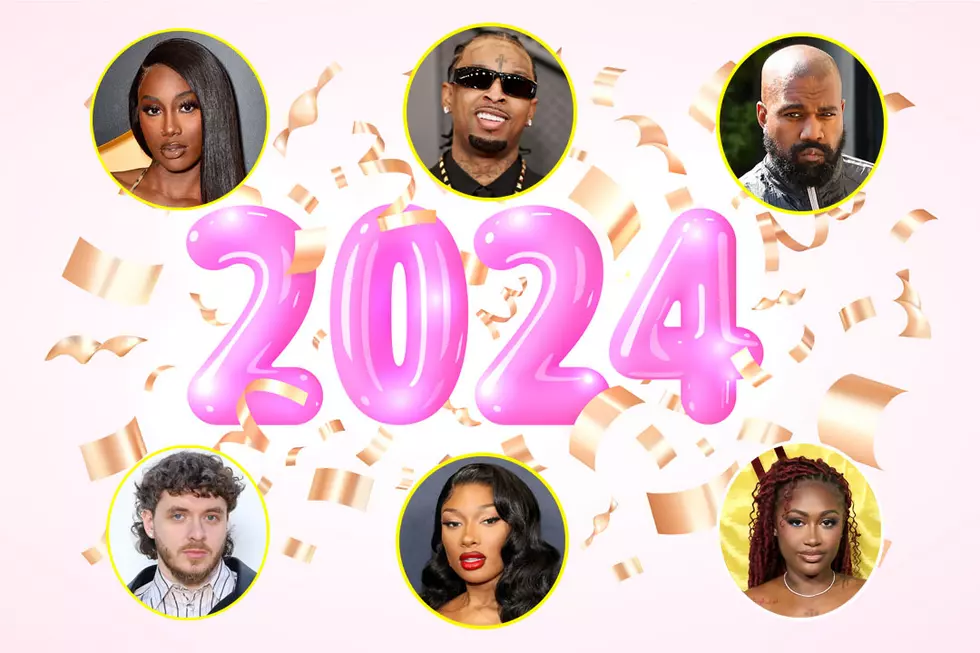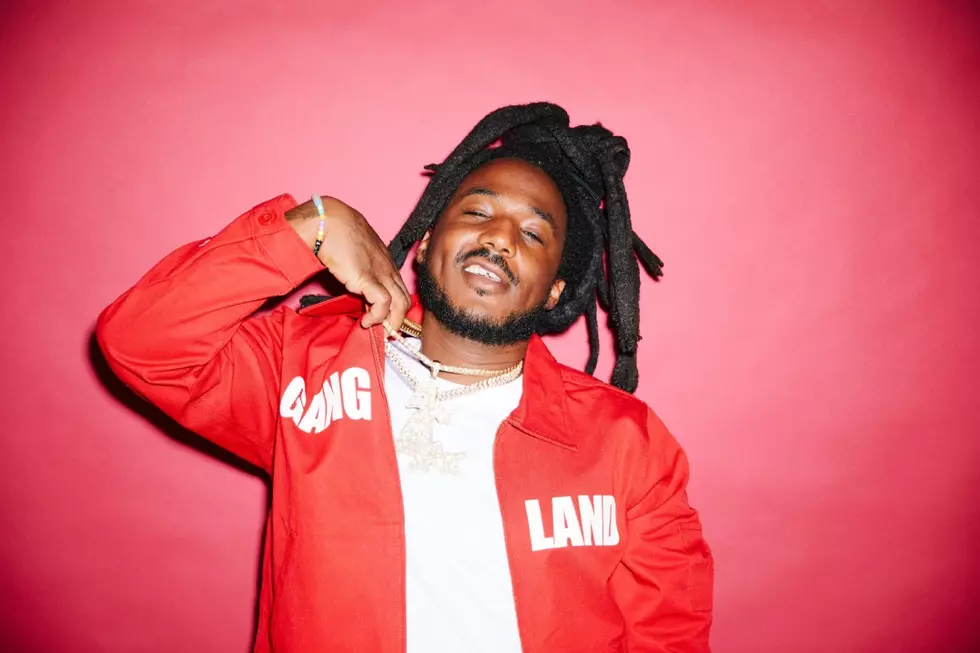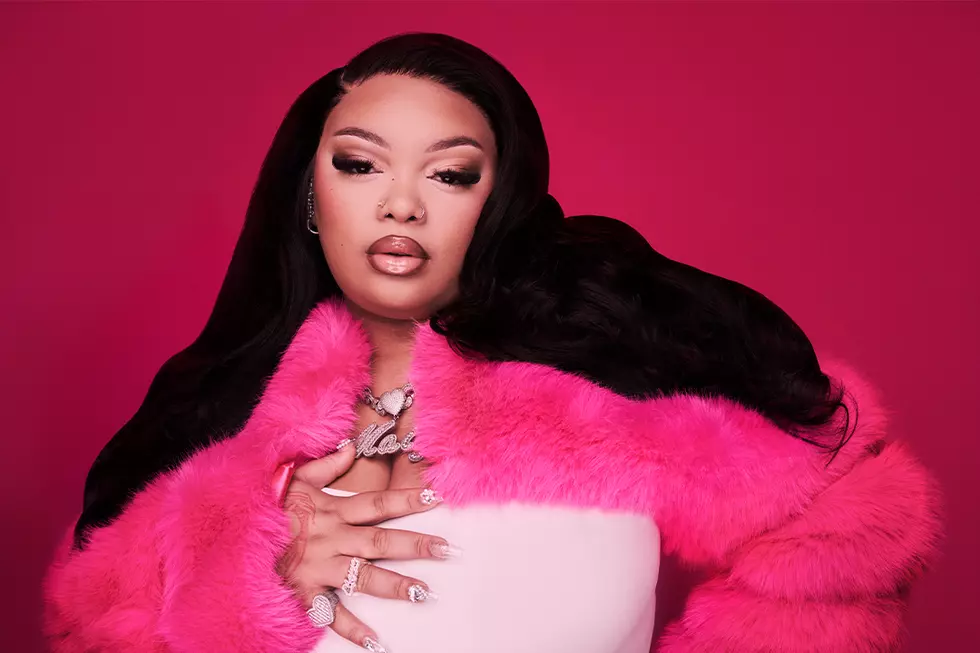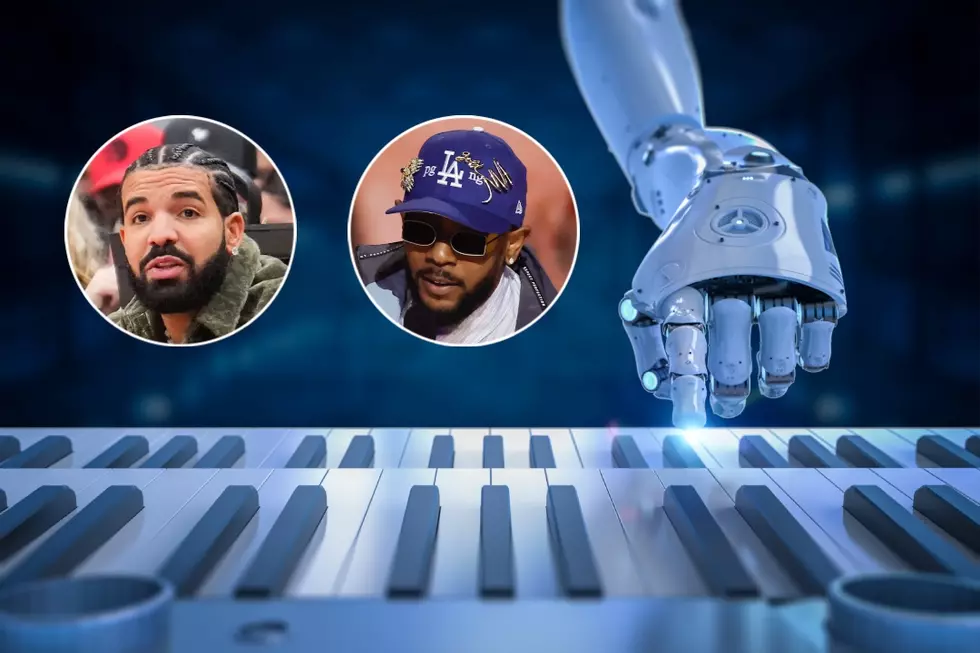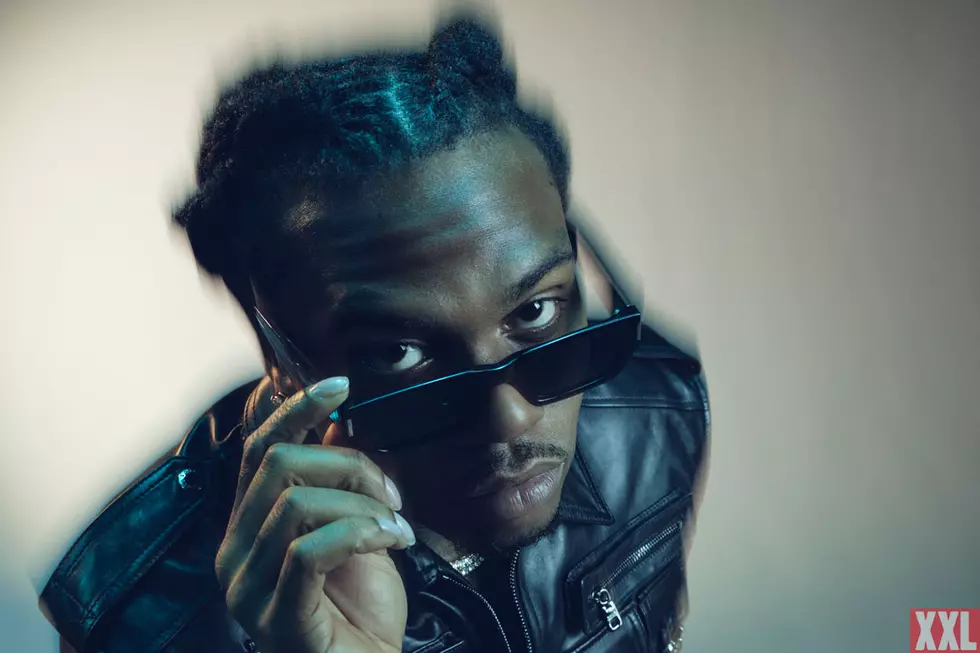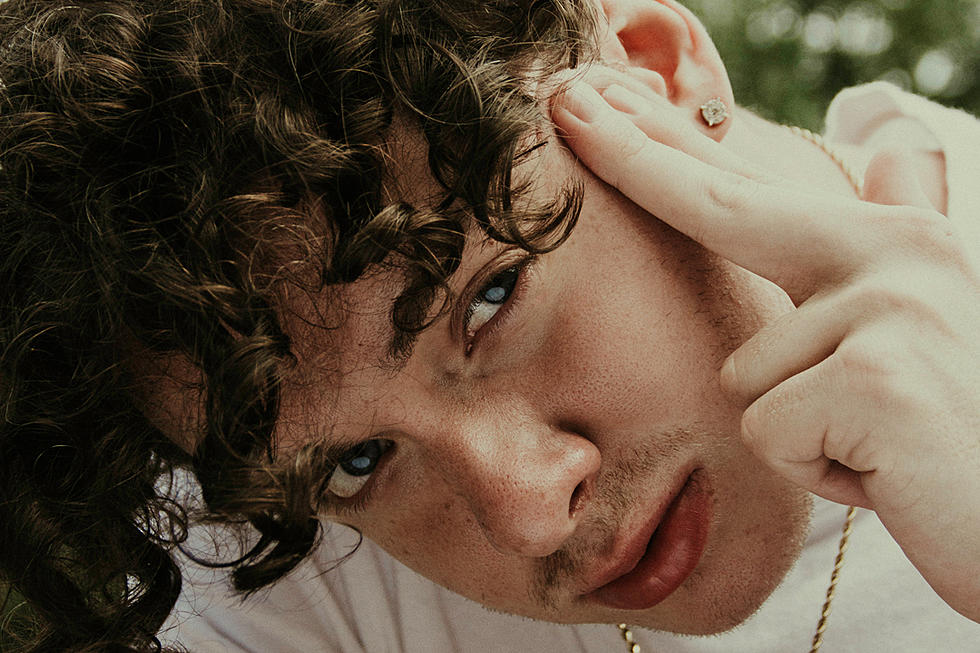
The Come Up: Jack Harlow Believes He Can Be as Big as Travis Scott
Success requires patience, and Jack Harlow is more than willing to put the time in. Rhyming since he was 11 years old, the Louisville, Ky. native is staking his claim in hip-hop. He's as smooth with melodies as he is with clever quips, making the 21-year-old rapper a testament to the value of taking your time and being true to yourself.
In 2016, Jack released his first project, 18, followed by 2017's Gazebo, which features his breakthrough song, "Dark Knight." The video, which features a young Jack running down a dark alley and showing himself to be a lyrically adept rapper, went viral on multiple social media platforms.
Each subsequent release has raised Jack's profile, particularly 2018's Loose, his first mixtape as a signee to the DJ Drama-helmed GenerationNOW imprint (under Atlantic Records). The tape finds Jack further sharpening his sound and style, effortlessly translating his Midwestern charm into strong hooks and bars.
In September of this year, Jack dropped Confetti, a self-described party-focused project designed to depict how much he's enjoying himself nowadays. The project, which he worked on for a full year, spans 12 tracks and features an appearance from hometown hero Bryson Tiller. Confetti reveals Jack getting personal ("River Road") and talking that talk ("Rotten" featuring EST Gee).
Reclined on a couch in the XXL offices, Harlow discusses the inspiration behind Confetti, wanting to be big like Travis Scott, longevity in rap and more.
XXL: What first drew you to hip-hop?
Jack Harlow: [Listening] to rap gave me confidence. It's something I figured I wanted to do for myself. I grew up listening to it—my mom would play it in the house. When I put it in my headphones, I would just be feeling myself.
Why do you think other genres didn't give you confidence?
It's just the pulse of it. It's something I gravitated to. A lot of kids grow up and they like heavy metal. There's an energy to that. That's understandable, but it has zero appeal for me. Sometimes I wonder how much it has to do with what you grow up having in your house. My taste is a lot like my mom's and my dad's, and their tastes isn't even alike.
How did you hone your own style? Even down to the production, you're really unique.
Something that was super important to me was being myself. It's always been a priority to not sound like other people. It's not something I'm racking my brain about but it's important to me. Of course I mimicked things as I was learning. I don't feel like I fell into a style or found a style, it's just what sounds good to me.
How did things change when you signed to GenerationNOW?
I was spoiled with studio time. Started going to the club more, trying new mind states. I wasn't of age, so I signed around right after I turned 20. Then I was able to get in the club with the right people. It was a wild introduction, my first introduction to liquor was Hennessy in a champagne bottle. Atlanta was a fun way to speed up my growth a little bit.
What do you remember about coming up through the ranks, before the deal?
I was rapping so early on, I think for a long time there's been this feeling of I'm special. People have made me feel like I'm special because I could rap really early. But the incline was being super myself, so much myself that I didn't take into context anything going on culturally. Then as I got older, I started to take in what's going on in music. It became a chase to, `"Who am I?" but also, "What's tasteful?" And now it's the blend of having the context of where culture is and what sounds good and what feels right, but also still tryna give 100 percent me. It's just been a figuring-out process and it ain't over.
"Dark Knight" was like a turning point for you. How did its success affect you?
It definitely made me look at the internet differently. It had this viral moment that kinda became part of our formula. I ain't dropped a song like "Dark Knight" since. A part of me is like, "Damn, why don't I just make another one of those." [But] I don't even like "Dark Knight" now, I wanna pop with something different.
Why don't you like it anymore?
The beat don't hit too hard. It's a good beat but the drums aren't big enough, so performing it isn't the potential it could be. But that's a particular artist thing. The main thing is, I don't write like that anymore. A lot of the things I said in there, they got crazy reactions, but I wouldn't say those things anymore.
What makes Kentucky such a vital part of your identity?
Hometown pride. It's part of my identity, putting the city on the map. My favorite thing is to go home, because you can feel the appreciation. I run into people and they shake my hand and say, "Thanks for what you're doing, from the city," cause they're from there, too. It gave me a lot of pride when Bryson [Tiller] did it and still talked about Louisville on a national level. Growing up, I thought it was so dope when I would see rappers represent their city. To me, that just became what you do. You put on your city and paint the picture for other people.
Why did you choose to sign to DJ Drama?
He's a legend, you know? I grew up seeing him on mixtapes, hearing his voice. To me, it was just an honor to walk into the studio and meet him. Everything made sense about it. We clicked, we wanted the same things and they saw in me what I saw in myself. It felt real.
What were you looking for from a label?
Just an understanding and just a plan. It's like any business situation: What are they bringing to the table, and do we understand each other? The biggest thing for me is the potential they saw in me is what I saw in myself. A lot of people see I'm White and think I'm a comedy rapper. They let me do what I want, they don't try to change me.
In some of the comments on the "Dark Knight" video, people were wondering if you were going to be gimmicky. Was it hard to outpace that?
Before I had my self-image as together as I have it now, the way people looked at me affected how I look at myself. I almost felt pressured to use comedy in my music, just to seem like I wasn't taking myself too seriously. People feel like, "Oh, as a White artist, you shouldn't take yourself that seriously." I think to a degree, we all shouldn't take ourselves too seriously, but you should be who you are and what you feel. I think people are still having trouble wrapping their heads around it. I see sometimes, "I don't understand what Jack Harlow is."
Where were you mentally when you started making Confetti?
I was having fun. Me and my homie Nemo, he helped me work on my music a lot. He was like "Bro, sometimes our music just sounds like we're just having way too good of a time." And we do be having a damn good time, and that's what I like to talk about, because I been partying a lot. Loose, it was such a step up for me sonically, but I think I got so deep into my sonics being there and the melodies—making ear candy—that I didn't get to let people know me through it.
Why does letting people know you mean so much to you?
I see artists all the time, they go up and then they'll go down because you never find out who they are. That's why if you look at who's on top—the Kendrick's, the Cole's, the Drake's—it's like every one of them told you how they really feel and who they are. And that's how you get fans. That's how you fill up shows. I see artists way bigger than me that are playing the same venues as me; you don't connect with your audience.
You don't seem untouchable to fans. You're still very connected to what you came from.
Soon I might have to implement that untouchable feeling. That's what Travis [Scott] got. If you really wanna take it there, you gotta have that superhero mystique. Muthafuckas are gonna have opinions and they're not gonna feel the transition at first. I used to never use melodies as much as I do now. You can be what you wanna be, that's the dopest part. I know I can be what Travis is. Not be Travis, but I was being genuine when I said maybe eventually I wanna evolve into that untouchable figure. If that's what feels real to me at the time, then it'll be real to everyone else.
Why was it so important for you to work with Bryson Tiller?
TrapSoul came out when I was in high school and just shot up. He's the hottest out there for a while; he's a hero of mine. Just a milestone, something I dreamed about that came true. And since then, our relationship has just blossomed. He was the first example to me of a Louisville motherfucker taking it there, where I wanna take it. His music is amazing.
What was it like being back home and TrapSoul comes out?
It was a different vibe in the city. 'Cause it never happened. Everyone was tryna get on, cause you know he started 502 Comeup, and that's the most beautiful thing, cause he inspired the whole city to rap. There was this rush of artists.
What sound were you aiming for with Confetti?
I wanted people to be able to dance to it. Uptempo, party vibes—that was the main thing. 'Cause that's what I like to listen to, I like smooth shit. Nighttime, ride out, get in the party, leave the party drunk. That's just the feeling.
What's the best thing that someone's said to you about Confetti?
Bryson sent me a paragraph that put me in tears. He just talked about almost every song and what he liked about it. It was a long text, just telling me how blown away and inspired he was. That felt better than making a song with him, and making a song with him felt damn good. My mom liked [the mixtape] too; that felt good.
It still means a lot when your parents like your stuff.
It's a damn good feeling. Especially cause my dad has disliked so much of what I made.
Is he a harsh critic?
He's just honest. He ain't a hater or nothing, but if he don't like something, he ain't gonna be like "Good job!" He's like, "I don't like it 'cause of this." I remember early on when I was writing, he hated how direct I would talk about things. He felt like there was no poetry to it, the way I would talk about sex was just very direct and cut and dry. He was like "That ain't how ya talk about sex." Inspired me to step my writing up.
How did you feel about the critical response to Confetti?
I got a review that was harsh as shit and they ripped me to shreds. It's one man, so it ain't nothin' to really be upset about, but when somebody goes into detail about why you suck, it makes you sit there like, "Damn, do I suck?" Then 10 minutes later, you're alright. But it definitely stuck with me for a bit. I called Bryson about it, because he got a bad review once. He was like, "Man, fuck that shit." But he told me it affected him a lot, it affected how he was making his music. But I'm over that. Aside from that, everybody fuckin' loves it. The one thing that made me feel better is I looked at Mac Miller's first review and sometimes I compare myself because of what it's like to be a White artist in a Black genre. He handled that so well. I looked at his debut album, and he got a 1.0. This means nothing in the grand scheme of things, but it's comforting for me to be like, "Muthafuckas are gonna hate."
Read 10 Wild Stories That Took Place During Hip-Hop Tours
More From XXL

